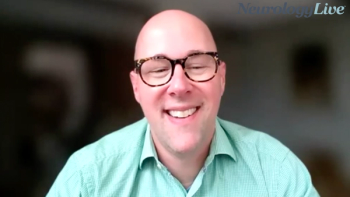
The professor of neurology at the University of Buffalo talked about the clinical promise of nipocalimab and its role in broadening treatment options for patients with myasthenia gravis, including adolescents. [WATCH TIME: 4 minutes]

The professor of neurology at the University of Buffalo talked about the clinical promise of nipocalimab and its role in broadening treatment options for patients with myasthenia gravis, including adolescents. [WATCH TIME: 4 minutes]
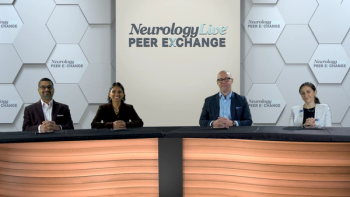
Panelists discuss how a multidisciplinary approach involving various specialists is crucial in managing generalized myasthenia gravis (gMG), offering final insights and recommendations for health care professionals treating gMG patients.

Panelists discuss how recent data presented at the 2024 American Association of Neuromuscular and Electrodiagnostic Medicine (AANEM) conference may impact clinical practice for myasthenia gravis, highlighting emerging treatments they find particularly promising for future management of the condition.

Panelists discuss how emerging agents for generalized myasthenia gravis (gMG) show promise in addressing current treatment gaps, highlighting specific therapies they find particularly exciting for future management of the condition.

Panelists discuss how certain aspects of myasthenia gravis management remain challenging, identifying ongoing unmet needs in diagnosis, treatment, and patient care.

Panelists discuss how generalized myasthenia gravis (gMG) presents unique diagnostic challenges in pediatric populations, review current standard-of-care management strategies for children and adolescents, and highlight promising investigational treatments for pediatric gMG.

Panelists discuss how they select patients for FcRn and complement inhibitor therapies, integrate these treatments into long-term management plans, monitor patients on these therapies, and approach treatment for those with inadequate disease control on traditional or targeted therapies for generalized myasthenia gravis.

Panelists discuss how they approach and potentially adapt the dosing and administration regimens of approved and investigational FcRn inhibitors in their myasthenia gravis patients, considering the prescribed guidelines and individual patient needs.

Panelists discuss how recent phase 3 trial results for nipocalimab and batoclimab, both neonatal Fc receptor (FcRn) inhibitors, demonstrate efficacy and safety in different generalized myasthenia gravis patient populations, comparing these findings with earlier phase 2 data and evaluating their potential impact on treatment approaches.

Panelists discuss how they approach combination therapy in generalized myasthenia gravis (gMG), including patient selection and timing, while also examining how the availability of newer targeted treatments has influenced their approach to managing newly diagnosed patients.

Panelists discuss how specific disease characteristics and individual patient factors influence their decision-making process when selecting treatments for generalized myasthenia gravis.

Panelists discuss how various approved and investigational FcRn-targeting agents differ in their mechanisms of action for treating generalized myasthenia gravis (gMG).

Panelists discuss how complement inhibitors work to treat generalized myasthenia gravis (gMG), evaluating their efficacy and safety profiles based on FDA approvals and clinical experience.

Panelists discuss how various outcome measures are utilized in clinical practice to assess and monitor patients with generalized myasthenia gravis.

Panelists discuss how the current understanding of myasthenia gravis pathophysiology is informing the development of targeted treatments, alongside reviewing the standard of care for generalized myasthenia gravis (gMG).

Panelists discuss how the classification of generalized myasthenia gravis (gMG) informs and guides treatment strategies for patients.

Panelists discuss how myasthenia gravis presents clinically in adults and children, factors contributing to its underdiagnosis, and symptoms that should prompt specialist consultation.
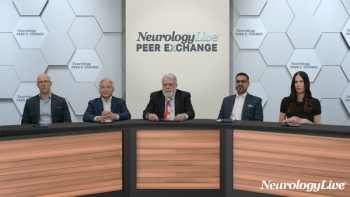
Expert neurologists share thoughts on how to improve patient/physician communication and how listening to the patient needs will aid in managing MG.

Drs Howard, Silvestri, Vu, Habib, and Stein comment on the role of pharmacists in managing MG, emphasizing educating both the pharmacists and the patients.

Expert neurologists discuss patient-focused care when it comes to treating MG, also highlighting clinical trials.

Neurology experts provide an overview of emerging treatments in MG, highlighting biomarkers and new routes of administration.

Experts in neurology discuss how to ensure disease progression in not due to poor adherence to treatment in MG, emphasizing educating the patient about their disease.

Expert neurologists share approaches to switching MG treatment due to either poor disease control or adverse events.
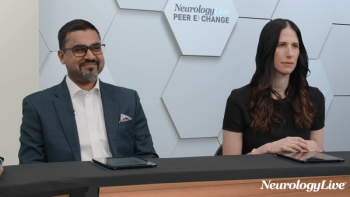
Experts in neurology review the varied routes of administration of targeted treatment in MG, highlighting intravenous and subcutaneous formulations and how they can provide more patient-centric care.

Expert neurologists discuss the treatment algorithm of MG, focusing on the use of targeted therapies as well as barriers to their use.
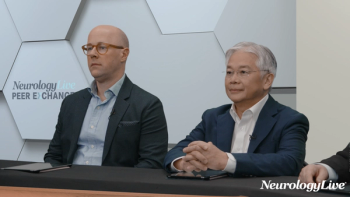
Nicholas Silvestri, MD, FAAN, and Tuan Vu, MD, provide an overview of the current FDA-approved targeted therapies for the treatment of MG.

Experts in neurology highlight taking age and quality of life into consideration when approaching treatment of MG, as well as comment on the standard of care for patients.

Expert neurologists discuss the factors that guide treatment selection in MG, shifting the framework to take patient preferences into account.

Ali Habib, MD, comments on the prevalence of MG in older patients and the increasing rate of hospitalization and mortality within this group.

Beth Stein, MD, reviews critical steps towards diagnosing MG, taking a look at the different types of reliable testing for the disease.
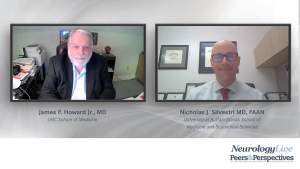
Published: July 18th 2022 | Updated:

Published: July 11th 2022 | Updated:

Published: July 18th 2022 | Updated:
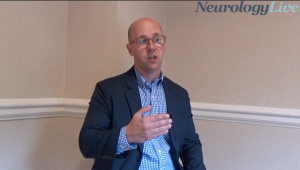
Published: September 26th 2022 | Updated:

Published: June 13th 2022 | Updated:

Published: June 27th 2022 | Updated: